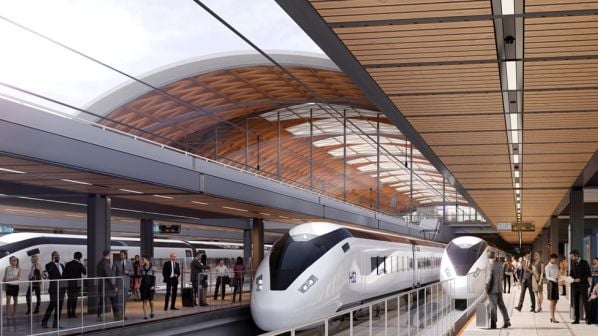“The HS2 programme has gone badly off-course and is now estimated to cost up to £88bn, significantly more than the original budget of £55.7bn (both figures are 2015 prices),” the House of Commons PAC says. “We are unconvinced that there will not be further cost increases, such as those we have seen in Crossrail and many other programmes, especially given that the route and forecast cost of the northern sections of the proposed railway is still very uncertain and will remain so for years to come.”
The PAC also notes the delays to the project, with the first phase from London to Birmingham and Lichfield now expected to open in 2029 “at the earliest”, three years later than originally planned.
The PAC has made seven observations:
- a lack of transparency by the DfT and HS2 Ltd, which the PAC says has undermined public confidence in the project, and more seriously a failure by DfT and HS2 Ltd to inform parliament that the project was in difficulty
- a failure by DfT to provide parliament with a clear warning that the project was going off-course and value for money was at risk
- the PAC says, despite raising concerns in the past, it is unconvinced that the DfT and HS2 Ltd have the skill and capability needed to implement the project, particularly in risk management and assurance, and project management and control, and HS2 Ltd lacks the commercial skills to manage the main construction contracts
- despite being seven years into the project, “huge uncertainties” remain with the design and delivery of the expansion of London Euston station to become the London terminal of HS2 - DfT, HS2 Ltd and Network Rail are currently revising the plans following recommendations by the Oakervee Review of HS2
- the DfT and HS2 Ltd’s failure to understand the consequences of changes to the hybrid bill for Phase 1 as it passed through parliament, which led to cost increases
- the DfT is not giving enough attention to the integration of HS2 with the existing network and the government’s decision to pause Phase 2b to Manchester and Leeds and to try to integrate it with Northern Powerhouse Rail will increase complexity and make the need for integration even greater, and
- the DfT is failing to make sufficient and meaningful changes to its management of infrastructure projects despite the problems already experienced with the Crossrail project, the Thamelink scheme, Great Western electrification and now HS2.
“Now that the government has given the programme the green light, things must change and there must be much greater transparency in future,” the PAC says. “What we have seen about government’s management of this programme is all too familiar and we remain concerned that lessons from the delivery of other major projects are still not being learned. To protect taxpayers’ money there should be far greater focus on fostering and embedding a culture that values learning from experience to do things even better and avoid repeating the same mistakes.”
The PAC has given the DfT and HS2 Ltd between three and six months to respond to its seven concerns, and says it will regularly examine how the project is progressing.
For more data on high-speed rail projects, subscribe to IRJ Pro.

